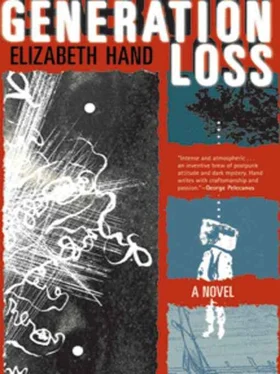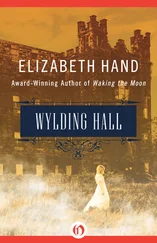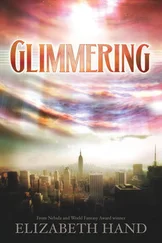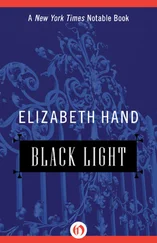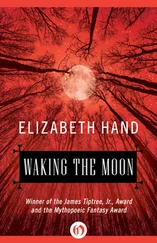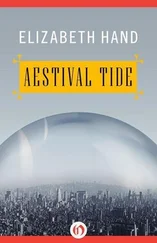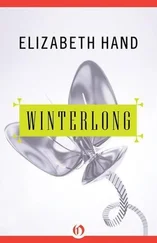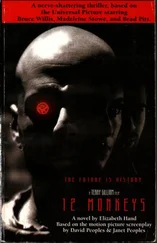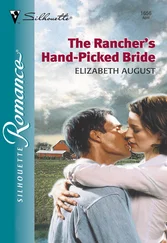“What the hell do people do out there?” I squinted at the islands. “Besides fish. I mean, what do you do?”
“I go back and forth. Bring supplies out to the islands. I’m a carpenter, and I do heating systems. There’s a lot of rich people around. Summer people. Used to be everyone left after Labor Day. Now some of ‘em stay on till Thanksgiving, but they don’t winter over. Summer people, I mean. Islanders live here all year round. But they don’t need me to do their work for ‘em.”
He rested the oars and lit a cigarette, cupping his hands against the spray. “Aphrodite, I’ve done some work for her.”
“How long you been here?”
Toby exhaled a plume of blue smoke. “I came in 1972. Used to be a commune out on Paswegas, it was pretty well known back then. I came and hung out there awhile, ended up staying.”
“A commune? How long did it last?”
“Not that long. Few years.”
I zipped my leather jacket, shivering. “I wouldn’t last a week.”
“People been living on these islands a long time,” Toby said mildly. “The Micmacs were here for thousands of years. But no, that commune didn’t last long. None of them ever do. I guess that’s why they decided to rename it an artist’s colony. That was more successful. For a little while, anyway. That’s why they call it Burnout Harbor.”
I made a face, and Toby said, “Hey, I’m surprised you didn’t know about that. If you’re coming to see Aphrodite, I mean. She kind of started the whole commune thing, her and her friends.”
He fell silent, smoking and staring with narrowed eyes across the reach of blue water. Finally he said, “That’s what brought a lot of folks here. People from away. Back-to-the-landers. That’s why I came, actually. I studied at the Apprenticeshop, boatbuilding, but a lot of the folks I met then, they were real hippies. There was a lot of communal-type living going on. A lot of runaways. College dropouts. Kids from Boston and New York. Even kids from California. Some from around here. They wanted to, I don’t know what—build their own yurts? Raise goats? Whereas Aphrodite was more into art and, well, kind of a spiritual thing, I guess you’d say. Oakwind, that’s what she named the commune. That’s when I first met her.”
“Wasn’t she kind of old for the whole hippie scene?”
Toby frowned. “Well, no, I don’t think so. And she was really goodlooking back then.”
I did the math in my head: Kamestos was born in 1936, so…
“Well, okay,” I conceded.
“There were a lot of artists.” Toby took a final drag on his cigarette then began to row again in earnest. “A few photographers. Couple of writer types who were friends of her husband; one of them stayed on. Everyone smoked a lot of weed. There was a lot of acid. Aphrodite owned a big chunk of land on Paswegas, her and her husband. They’d let people squat on their property, build these little shacks and stuff. A few still live there; locals call ‘em the cliffdwellers. Aphrodite’s husband, he was dead by then.”
“Did you know him?”
“No. He killed himself. I never heard the whole story. I guess he was gay, and maybe that was an issue, or maybe it was drugs? Some weird stuff went on at Oakwind, the whole place kind of imploded. Everyone just went their separate ways after that.”
I rubbed my arms. “What kind of weird stuff?”
Toby’s gaze grew remote. He turned to stare at the green and black mass of Paswegas looming in the distance. “Out on the islands, every couple of years you get a witch hunt. People go crazy, cabin fever. Winter especially. Lot of times it’s directed at a schoolteacher, someone from away. Back then there was only about forty people living on Paswegas. Today there’s less than that. So the hippies came, and all of a sudden you’ve got, like, double the population on a place that’s not real used to having company, except in the summer. It’s a fragile human ecology, just like an animal ecology; you introduce a new species, even just one person, and everything goes to hell. Some bad stuff happened. Afterward most everyone split.”
“But not Aphrodite.”
“Not Aphrodite,” said Toby. “Maybe you could get her to talk about it. But I doubt it. Okay, here we go—”
We’d come up alongside the sailboat. A carved sign adorned the stern; Northern Sky picked out in gold leaf. Even beside the dinghy it looked small. I had a flash of panic: how could something so tiny hold two people, let along bring them anywhere safely? Toby grasped Northern Sky ’s rail and pulled the dinghy against it. I stood and stumbled on board. Toby followed, then began tying off the dinghy at the stern.
“You go put your stuff below,” he called. “Just slide that hatch there, I’ll be right down. Watch your head.”
The boat was a pretty little thing. White paint, gray trim, mahogany accents. Bronze portholes verdigrised from age and salt air. I still couldn’t see how two people could move around without bumping into each other or tripping over a million lines, wires, sails, buckets, God knows what.
Not to mention ice—the deck was slick with it. Fortunately it was only three steps across the bridge deck to where the companionway led down. I skidded over and pushed open the hatch then climbed down a ladder into a space so densely packed it was like walking into a broom closet.
I had to stoop to enter, and even then my head grazed the ceiling. Forward, my way was blocked by the mast and, directly behind it, a sheet-metal woodstove roughly the size and shape of a large coffee can. Beyond this was the bow, a V-shaped berth crammed with boxes, milk cartons, power cells, books, ropes, tools, a small chemical toilet.
But where I was—smack in the middle of the main cabin—everything was meticulously, if eccentrically, organized. To either side was a bench covered with frayed corduroy cushions. Above these were amazingly carved shelves, pigeonholes, cupboards, and nooks, some no bigger than the pencils they held, others large enough to support rows of books and manuals. There were hooks carved like fingers, canned goods stacked behind carven filigree. Two copper gimbals shaped like mouths held kerosene lanterns. Crocheted nets dangled from the ceiling, filled with onions and garlic and sprouting potatoes. Tucked into an alcove by the ladder were a tiny alcohol-fueled cookstove and a NOAA weatherband radio beside a bottle of Captain Morgan’s Rum and several bottles of Moxie.
“You okay? Find a place to stow your stuff?”
Toby’s bearded face appeared in the hatch. I ran my fingers across a shelf carved with rows of eyes. “Did you do this? All this carving? And this?”
At the end of the shelf hung a mask. Papier-mâché, vaguely Native American-looking: a frog, mottled brown and green and creamy yellow. It had protruding golden eyes, a wide, lipless grin. The papier-mâché was so smooth it looked like plastic, except at the edges where you could see unpainted bits of newsprint. It was beautiful, but also unsettling.
I said, “You made this too?”
“Yup.” Toby came down, and I moved to make room for him. “Just put your bags there—”
He pointed at one of the cushioned berths. “We’ll motor over. Not enough wind; we’d have to tack back and forth. Just as fast this way.”
I turned from the frog mask and put my bag down then removed my camera.
Toby stared at the old Konica. “Boy, that’s an antique.”
“I’m a photographer.” It was the first time I’d spoken those words in a long time.
“Don’t most people use digital cameras these days?”
“I don’t.” I glanced around the cabin. “Do you have a mirror? I feel pretty gross.”
“No mirrors.” His gaze remained even, but his eyes narrowed as he added, “You don’t have a mirror on you, do you?”
Читать дальше
